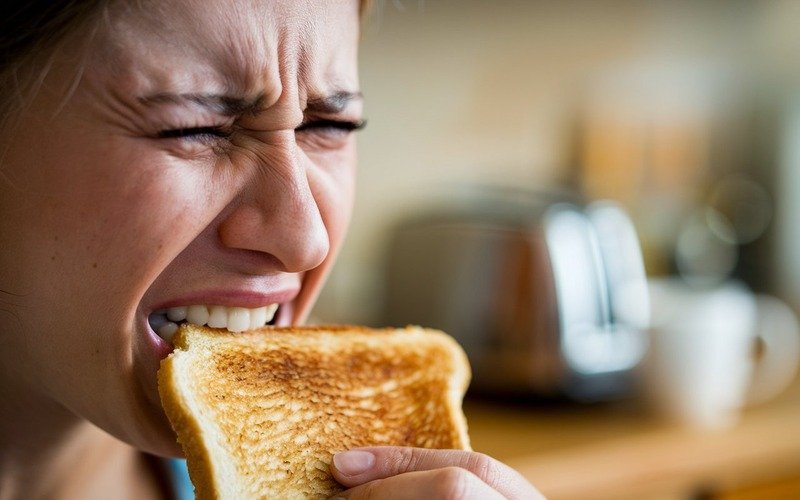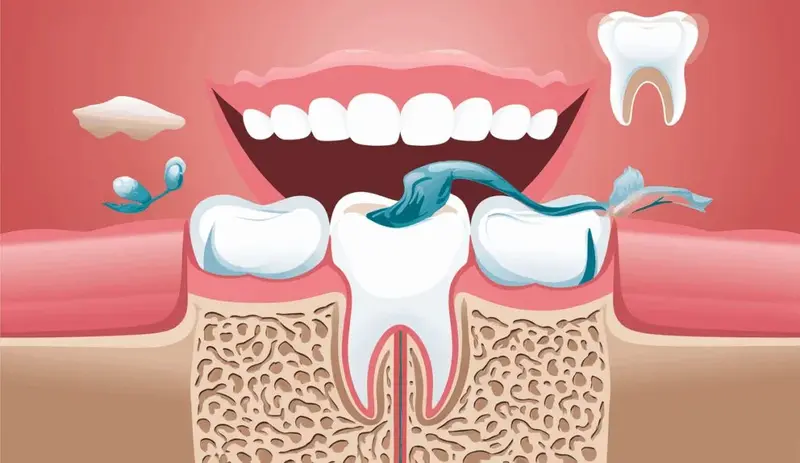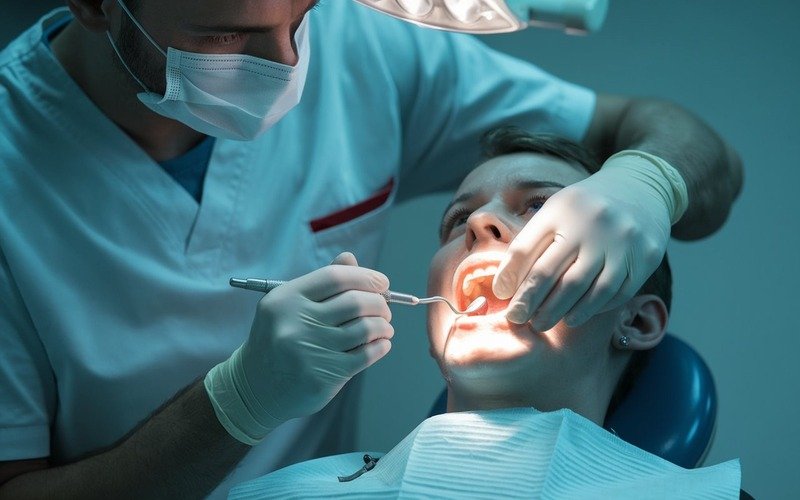
Tooth pain can strike suddenly, turning a simple meal into a uncomfortable experience. You might be enjoying your favorite sandwich when a sharp jolt of pain stops you mid-bite. Understanding tooth pain is crucial for your oral health and overall well-being.
This guide will help you uncover the potential reasons behind your dental discomfort and provide insights into what might be causing your symptoms.
Introduction
Biting and then feeling a sharp ache in a tooth is something a lot of people end up complaining about at the dentist’s chair. It happens because chewing puts pressure on teeth that can show up hidden problems we didn’t notice before.
Knowing why a bite can bring pain is useful – it often tells us something is wrong. At LifeWorks Dental in Houston, TX, we understand that seeing a dentist quickly and taking good care every day is the best way to stop big dental trouble.
Why Biting Can Cause Pain?
The most common reason for pain when you chew is a cavity. When a hole gets bigger, the hard outer layer (enamel) and the softer dentin get worn away, so the nerves inside the tooth are closer to the surface.
Push on that spot and you feel a sharp jolt. Another big cause is a cracked tooth. Tiny cracks can be invisible, but the pressure of a bite can make them hurt. The force travels along the crack and wakes up the nerves.
When the Ache Is More Than a Little Nuisance
If the pain doesn’t go away after a day or two, or if it gets stronger, that’s a sign to act fast. A lingering ache may mean the nerve inside the tooth is getting involved or that the decay has gotten deep.
A sudden, stabbing pain that comes with swelling, a dark spot on the tooth, or even a fever is often an abscess. Waiting on that kind of pain can make tissue die, spread infection, and force a dentist to do a root canal.
You May Like To Read: Why Do I Have Tooth Pain During Hiking?
Different Things That Can Cause The Discomfort
- A cavity (tooth decay)
- An infection / abscess
- A cracked tooth (sometimes called cracked tooth syndrome)
- Gum disease (periodontal disease)
- Pain from a sinus problem pressing on upper teeth
Each of these has a different background. A cavity is just lost mineral. An abscess is a collection of pus from an infection. Only a professional can tell which one you have.
How Dentists Find Out What’s Wrong?
A real dental check-up is still the most reliable way to know the cause. X-rays – especially bitewing and periapical shots – show hidden cavities, cracks, and infections that you can’t see by eye.
The dentist will look inside your mouth, maybe press on the teeth with a special stick or ask you to bite on a thin piece of foil to see where the pain comes from. You can visit our Google Maps location to find us easily.
How To Keep Teeth From Hurting When You Bite?
Seeing the dentist regularly is the backbone of prevention. Those routine visits let the dentist catch problems before they become painful.
At home, three habits are the most important:
1. Brush twice a day with fluoride toothpaste
2. Floss every night
3. Use a mouthwash or sealant when the dentist recommends it
Conclusion
When a bite makes a tooth hurt, it usually means something underneath the surface needs attention. Quick diagnosis, proper treatment, and steady daily care are the three pillars of a healthy mouth.
If you notice biting-related pain that won’t quit, book an appointment with a dentist right away – it’s the safest way to protect both comfort and the ability to eat what you like.
Tooth pain while biting shouldn’t be ignored. Professional dental care offers the most effective path to understanding and resolving your specific dental concerns.





